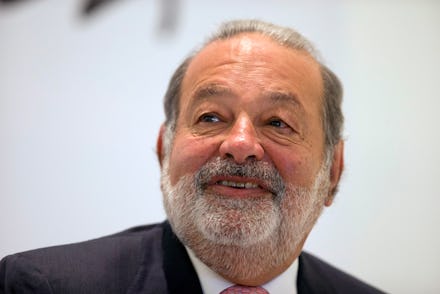The World's Second Richest Man Has a Radical Idea on How Many Hours You Should Work

A three-day work week. That's what Carlos Slim, the second-richest man in the world, recommends. The 74-year-old Telmex CEO said that a "radical overhaul" in the way people work would be beneficial by having longer time off each week, reports the Financial Times.
"With three work days a week, we would have more time to relax; for quality of life," Slim said during a recent business conference in Paraguay. "Having four days [off] would be very important to generate new entertainment activities and other ways of being occupied."
The downside though, is that people would work until they're 70 or 75 years old. The work week would be shorter, but there would be a lot more of them. Retiring at 50 or 60, which mainly seems like an impossible pipedream these days, would not be in the cards.
Even though Slim, whose net-worth exceeds $80 billion according to Forbes, is making a progressive suggestion about the workweek, it actually makes a lot more sense when you compare it with similar notions about productivity.
Working more makes people less productive. Among the world's top economies, the U.S. is one of the worst offenders when it comes to long workdays, according to data compiled by the Economist and the Organization for Economic Co-operation and Development. As people worked more hours, productivity declined.
As the chart above indicates, the more you work, the more GDP-per-hours-worked descends. In countries like Germany where people only work 1,400 hours each year, the workforce is 70% more productive than Greeks who average 2,000 hours each year.
Image Credit (all): The Economist
Picking up on that trend, Sweden introduced a program in 2014 to lessen the seven-hour-workday to six. Though currently just an experiment, something similar happened in Finland and found success.
In other words, Slim's suggestion is completely spot on. There would certainly be a trade-off between fewer hours and more work weeks, but it's arguably worth it. More free time makes people more productive in the office, which would eventually stimulate the economy and encourage growth. Now if only the U.S. would wake up and stop resisting the idea, we would all be better off.